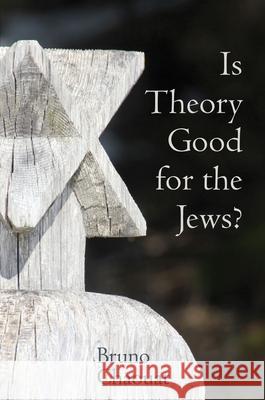Is Theory Good for the Jews? » książka
Is Theory Good for the Jews?
ISBN-13: 9781789620498 / Angielski / Miękka / 2020 / 288 str.
Is Theory Good for the Jews?
ISBN-13: 9781789620498 / Angielski / Miękka / 2020 / 288 str.
(netto: 159,58 VAT: 5%)
Najniższa cena z 30 dni: 143,51
ok. 30 dni roboczych.
Darmowa dostawa!
For at least fifteen years, any keen observer of European society has been aware that antisemitism is no longer a matter of racial theory, nationalism, or exclusion of the 'other.' While in the past antisemites saw Jews as all too modern 'rootless cosmopolitans' (to use Stalin's expression), today's European antisemitism construes them as obsolete precisely because they are attached to their roots, their land, their community, their origin. The Jews are now perceived as a reactionary force that hinders the progress of humankind toward multiculturalism, understood as the peaceful, infinitely enriching coexistence of ethnicities, races, religions, and cultures within the same territory. The antisemite of yore viewed the Jews as an inferior race; today he views them as racist. By looking back to the emergence of a postwar theoretical discourse on trauma, memory, victims, suffering, the Holocaust and the Jews, Is Theory Good for the Jews? explores how 'French thought' is implicated in intellectual, literary and ideological components of the global and local upsurge of antisemitism. The author probes the legacy of Heidegger in France and exposes the shortcomings of radical social critique and postcolonial theory confronted to the challenge of Islamic terrorism and Jew hatred. This book is the first effort to analyze French responses that have regrettably played their part in generating the new antisemitism.











